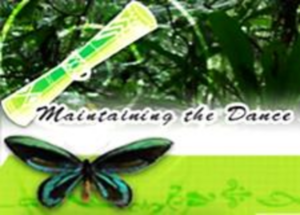PWM STRATEGIC PATHWAYS
Partners With Melanesians Inc. is the longest serving Conservation NGO still functional amidst the changing and challenging political and socio- economic conditions which caused similar organizations to change their visions, missions, objectives and aspirations or to cease operations.
2002 – 2006
The first strategic plan for PWM was developed in 2001, following the first external evaluation of PWM’s work on the proposed Managalas Conservation Area Project. In 2006, PWM ventured beyond Managalas to carry out a number of scoping activities in other local areas upon the interest and request of the people. Scoping was conducted in areas of Wowonga, Musa and also in the Lembena area bothering the East Sepik, Enga and Western Highlands Provinces. Wowonga and Musa did not pass the criteria due to various reasons, while PWM began community mobilizing in Lembena. However, local political differences interfered with work which resulted in the early exit. Subsequently, PWM in consultation with the donor and partners shifted its efforts to concentrated on Karimui Conservation Area Project, since the local CBO there for 4 years consistently requested and followed PWM to work with them as its partner.
2007 – 2011
The second Strategic Planning Document ensured high concentration of sustainable livelihood activities to support the conservation efforts on the Managalas Plateau. The document also highlighted systems and procedures to be put in place along the systematic and strategic lines of the various programs that should be accomplished with a thorough Organizational Development.
However, Projects like the Managalas Organic Coffee Project faced with, high establishment, operational and logistics costs from the farmers to the markets, coupled by natural disaster and miss- management led to an early closure without realizing its full potential. The following year, PWM ensured a desk-top organizational development review in March 2012, of which recommendations from the review set the basis for the organizational development workshop that took place between end of June to early July 2013. The organizational development workshop ensured PWM was characterized through the different stages of an organizational development cycle, where PWM’s life stage was clearly visible as one reaching its final stage.
2013 – 2017
The third Strategic Planning document made certain the recommendations from the second evaluation were considered for implementation. PWM conducted an organizational retreat in February 2016, to revisit its Vision, Mission, Goal, Objectives and Values, making slight alterations to fit into the changing economic and social conditions.
PWM re-defined its Vision from: “Well informed, organized, motivated and self- reliant societies living in peace and harmony with their environment” to “Melanesian societies living in peace
and harmony with nature and the environment”. The Mission was also redefined to link the objectives. It was highlighted during the retreat that communities perceived PWM as the one responsible for ensuring community development, thus the word development was changed to correct this miss-conception.
From: “PWM is committed to facilitate, formulate and strengthen conservation and sustainable community development efforts through education and consensus building process with effective networking and partnerships” to “PWM is committed to facilitate, formulate and strengthen conservation and sustainable community initiatives through education and consensus building process with effective networking and partnerships”.
2018-2022
In this fourth strategic document, PWM is aligning its work with the Government’s Vision 2050, especially Pillar5 on “Environmental Sustainability and Climate Change,” and as embedded in the 4th Goal of the Country’s Constitution “Papua New Guinea’s natural environment to be conserved and used for the collective benefit of us all and are replenished for the benefit of future generations”.
PWM is also guarded by the overarching policies including the ‘Environment Act 2000′ and the Protected Areas Policy’ in achieving conservation outcomes in its efforts, all the while, taking into consideration the ‘Conservation Areas Management Act’ and the ‘Flora and Fauna Wildlife Management Act’ (outdated but now incorporated or amalgamated into the Conservation Act 2000) which will still be used as guiding posts for her efforts.
PWM is committed in working with local communities and resource owners through networking and partnerships with other national and international NGOs and donor organizations, private and public sectors including the respective local, provincial and national government agencies in building the capacities of the resource owners in conserving, managing and utilising their resources for their livelihoods for now and future generations.

